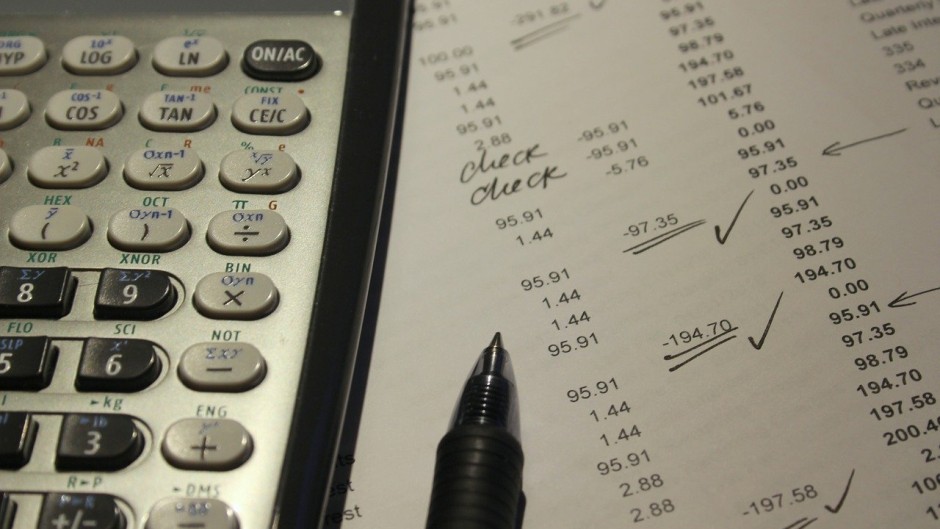JOHANNESBURG - The amount it costs to fill a food basket in South Africa keeps climbing.
A recent study by the audit and consulting firm Deloitte found that 75 percent of South Africans were concerned that the prices for everyday purchases would continue to increase, while 80 percent of consumers across all income groups expected the prices of groceries, household utilities and fuel to rise.
This stark reality means budgeting may be more necessary than ever.
If you don’t know how to create a budget, then you shouldn’t feel bad – most adults aren’t taught how to create one. And most people don’t budget, because they see it as restrictive or unsustainable.
As a financial planning academic, I focus in my research on improving financial wellbeing and promoting savings behaviours through interventions such as budgeting. Here are five guidelines for creating a budget.
1. Apps vs spreadsheet
A good place to start is to choose the format of how you’re going to budget. There are several online templates and apps you can use for budgeting. For instance, 22Seven has gained popularity in South Africa due to its compatibility with several financial institutions, including the country’s big five banks.
If you prefer to put pen to paper, some online templates come with free printable budgets. Creating your own Excel spreadsheet is an equally good approach.
What matters most is using a tool that you can commit to.
2. Itemising your income and expenses
A budget essentially shows how much you’re spending in relation to how much you’re earning. So once you have selected your budgeting tool, you need to fill in your income and itemise how much you’re spending on each expense in a month. A budget can be considered a cashflow statement because it allows you to track money coming in (income) and money going out (expenses).
If you are living within your means, your budget should indicate a surplus – more cash inflows than cash outflows. So budgeting provides an accurate account of your short-term financial position.
3. A realistic account of expenses
When you look at your financial statements, fill your expenses into your budget honestly and accurately. Don’t cheat! Since everyone’s financial situation is different, your budget will also be unique.
Even though there is no one-size-fits-all approach to budgeting, it should still consider all of your expenses (both regular and intermittent). A general rule of thumb is that if it’s deducted from your account then you should treat it as an expense. This includes payments for housing, medical insurance, fuel, dining out, credit card repayments and even bank fees.
4. Save first, spend later
Now you’ve seen how much you’re spending. Either it’s too much – and you can plan where to cut back – or you have savings at the end of the month.
When compiling your budget it’s important to demarcate how much will be in the form of savings. What’s more important is getting into the habit of saving before you spend instead of saving after spending. If you spend first then you’ve deprived yourself of the opportunity to save for a rainy day.
Furthermore, research has shown that getting into the habit of saving has a transgenerational effect: it can be considered a cultural value that is passed on from one generation to another. So think of saving as paying yourself first. Once you have done so, you won’t feel guilty for treating yourself because you’ve already done the financially responsible thing by putting your savings aside.
5. Considering assets and liabilities
Once you’ve become comfortable with consistently budgeting, you can take it up a notch by including your assets (everything you own with an economic value) and liabilities (everything you owe) to determine your overall financial position.
You can get a clearer picture of your overall financial wellbeing by compiling a list of all your assets, for example your savings and home equity, in relation to liabilities (such as bank loans). Knowing your long-term financial position can indicate how financially resilient or vulnerable you are. In the event of a financial emergency, you will know which resources you can draw upon to meet an unexpected expense.
By creating a budget (and sticking to it), you can protect yourself and your household from financial shocks. Consider the alternative. Imagine you haven’t budgeted and set savings aside. If a financial emergency were to arise, your next best bet would be to borrow the funds you need. You’d have to come up with a plan to repay what you’d borrowed while also building your savings.
A healthy habit
Getting into the habit of budgeting isn’t easy, especially if you haven’t done it before or you’re intimidated by the process. But, as the expression goes, “a journey of a thousand miles begins with a single step”. Think of budgeting as taking a small but important step towards reclaiming control over your finances and improving your financial well-being.![]()
Bomikazi Zeka, Assistant Professor in Finance and Financial Planning, University of Canberra
This article is republished from The Conversation under a Creative Commons license. Read the original article.

